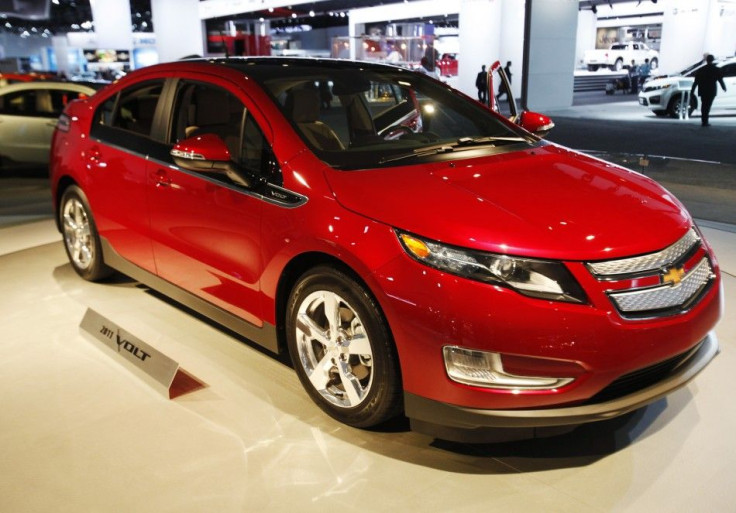Chevy Volt Fire: NHTSA Closes Investigation, Says Electric Vehicles are Safe

The U.S. National Highway Traffic Safety Administration closed its investigation into fires in the Chevrolet Volt electric cars, concluding that Chevy Volts and other electric vehicles do not have an increased risk of fire compared to gas vehicles.
Based on the available data, NHTSA does not believe that Chevy Volts or other electric vehicles pose a greater risk of fire than gasoline-powered vehicles. Generally all vehicles have some risk of fire in the event of a serious crash, the NHTSA said in a statement Friday.
The NHTSA's announcement comes about two weeks after General Motors said it had made necessary modifications to prevent the car's battery from catching on fire days or weeks after a serious crash.
The agency opened an investigation on Nov. 25, after a severe-impact lab test in May resulted in crash fires days or weeks after the tests. GM blamed an intrusion on the battery pack and a coolant leakage for causing the fires, saying the coolant crystallized and resulted in an electrical short. GM said it had originally included the liquid-cooling system in the battery because of better overall performance and a longer life.
Two weeks ago, the company announced changes to the vehicle structure that strengthened the area surrounding the battery pack. It also added a sensor to monitor coolant levels in the battery and a tamper-resistant bracket to avoid coolant overflow.
These enhancements should prevent battery pack intrusion and coolant leakage, thereby eliminating the risk of a post-crash electrical fire like the one in the NHTSA side-impact pole test, Marry Barra, GM's senior vice president of global product development, said in a conference call announcing the changes. These will also be helpful to the automotive industry as the adoption of electrification technologies expand.
Upon that announcement, the NHTSA said GM's fixes would be enough to alleviate any concerns the agency had. But it waited to release its full report until Friday based on a crash test performed on the revitalized model in late December.
No Chevy Volt owners have reported crash fires to the NHTSA, the agency said Friday. The agency also established interim guidelines to increase awareness and identify appropriate safety measures.
In the guidelines, the NHTSA said that repair shops should not keep a badly wrecked vehicle with a lithium-ion battery inside a building or structure or within 50 feet of a building or structure. It also said that salvage yards should ask manufacturers how to have the battery removed of electricity.
GM has predicted bigger sales for the Volt this year, after it missed its goal last year in selling only 7,671 units. GM North America president Mark Reuss said that he didn't think the investigation had affected sales, since December was the vehicle's best-selling month in 2011. The Volt could see increased sales in California -- a crucial market -- beginning in March, when a special edition will allow drivers to ride in carpool lanes.
© Copyright IBTimes 2024. All rights reserved.




















